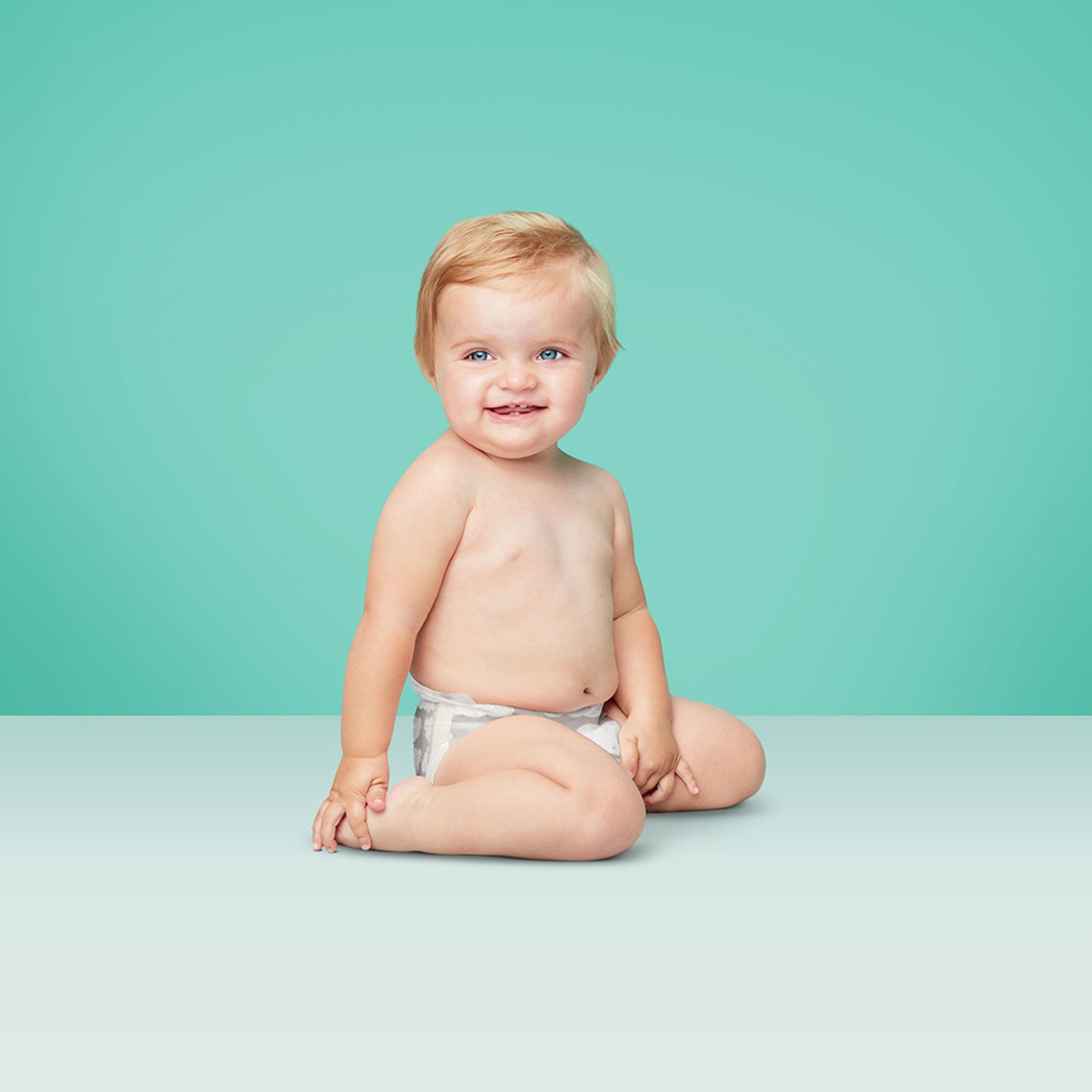Why store brand diapers are hot sellers online
Store brand diapers now account for 15% of online diaper sales after growing 72% over the past year. This compares to just 11% sales growth by the national brands. The ascent of store brands is coming at the expense of national brands. Pampers, for example, lost 6% of its online market share over the past year, and almost every brand that’s gaining share today is a private label.
From toothbrushes to dog food, private label brands have been steadily gaining online sales and market share across many consumable categories. Disposable infant diapers are no exception. Within the online baby products category, now a $4 billion industry, disposable diaper sales grew 16% over the past year. This development has been fueled, in part, by the booming popularity of private labels offered by e-commerce giants such as Amazon, Walmart and Target.
What was traditionally a category dominated by Proctor & Gamble’s Pampers and Luvs brands and Kimberly-Clark’s Huggies has been disrupted by new entrants backed with a not-so-secret weapon: Their control over all merchandising on their web and digital properties, which allows them to drive traffic to in-house brands over national rivals (for free). It’s becoming increasingly difficult and expensive for the big national brands to stand out.
No longer synonymous with inexpensive, low-quality substitutes for national brands, today’s private labels offer retailers the opportunity to attract loyal deep-pocketed shoppers while boosting profits. The move to more premium in-house brands, started by retailers like Trader Joe’s, Whole Foods and Costco Wholesale years ago, has helped change consumer perception of private labels — some are now viewed as having quality and benefits as good as if not superior to national brands. As consumers shift more of their household spending online, these in-house brands — backed by deep pocketed merchants controlling all aspects of the sites upon which they are sold — are becoming new national brands of their own … without a dime spent on advertising.
Most major retailers have at least one in-house diaper while three of the largest retailers have distinct brands targeting different slices of the market. Amazon, for example, has two private label diaper brands, Mama Bear and now a premium natural diaper brand called Earth + Eden. Launched in 2017, sales of Mama Bear diapers grew 225% over the past year, aided by Amazon’s ability to feature its in-house brand prominently in search results adorned with Amazon’s coveted “Amazon’s Choice” moniker.
While Walmart and Target have long focused on value shoppers with their familiar Parent’s Choice and Up & Up brands (which are some of the least expensive disposable diapers on the market), their new crop of private labels have gone decidedly up-market, where profit margins are fatter. Walmart’s newest private label, Hello Bello, is aimed at parents willing to pay a premium for infant diapers that are both good for their babies and the environment. These eco-friendly, hypoallergenic, chemical-free diapers allow Walmart to capitalize on growing consumer demand for natural products from boutique brands that promote wellness. Target followed the same suit earlier this year with the launch of its Cloud Island label.
The new trend in private brands, as seen with disposable infant diapers, is their positioning as “affordable quality,” rather than the cheapest option on the shelf. In-house labels like Hello Bello, Mama Bear and Earth + Eden are priced below premium brands such as Pampers, The Honest Company and Seventh Generation but above value brands such as Luvs. Parents can now get premium features at an affordable price. These moves up-market have in turn forced national brands to take notice and double down on innovation to justify their premium pricing and maintain market share. Last year P&G, for example, launched its new Pampers Pure line featuring chemical-free materials and eco-friendly plant-based fibers.
As the pace of e-commerce growth naturally slows from the torrid rate seen over the past two decades, online retailers are increasingly looking to the bottom line as opposed to just top line sales growth. In-house premium brands provide online retailers a means of better monetizing their site traffic and higher loyalty while placing national brands (that bankroll almost all advertising in the category) at a significant disadvantage. This trend is clearly on display within the disposable diaper category and is sure to play out repeatedly across many more consumer products categories for years to come.
Matt Pace is senior director of client insights at 1010data, a leader in analytical intelligence and provider of consumer transaction data to hedge funds and other asset managers. He can be reached at [email protected].

